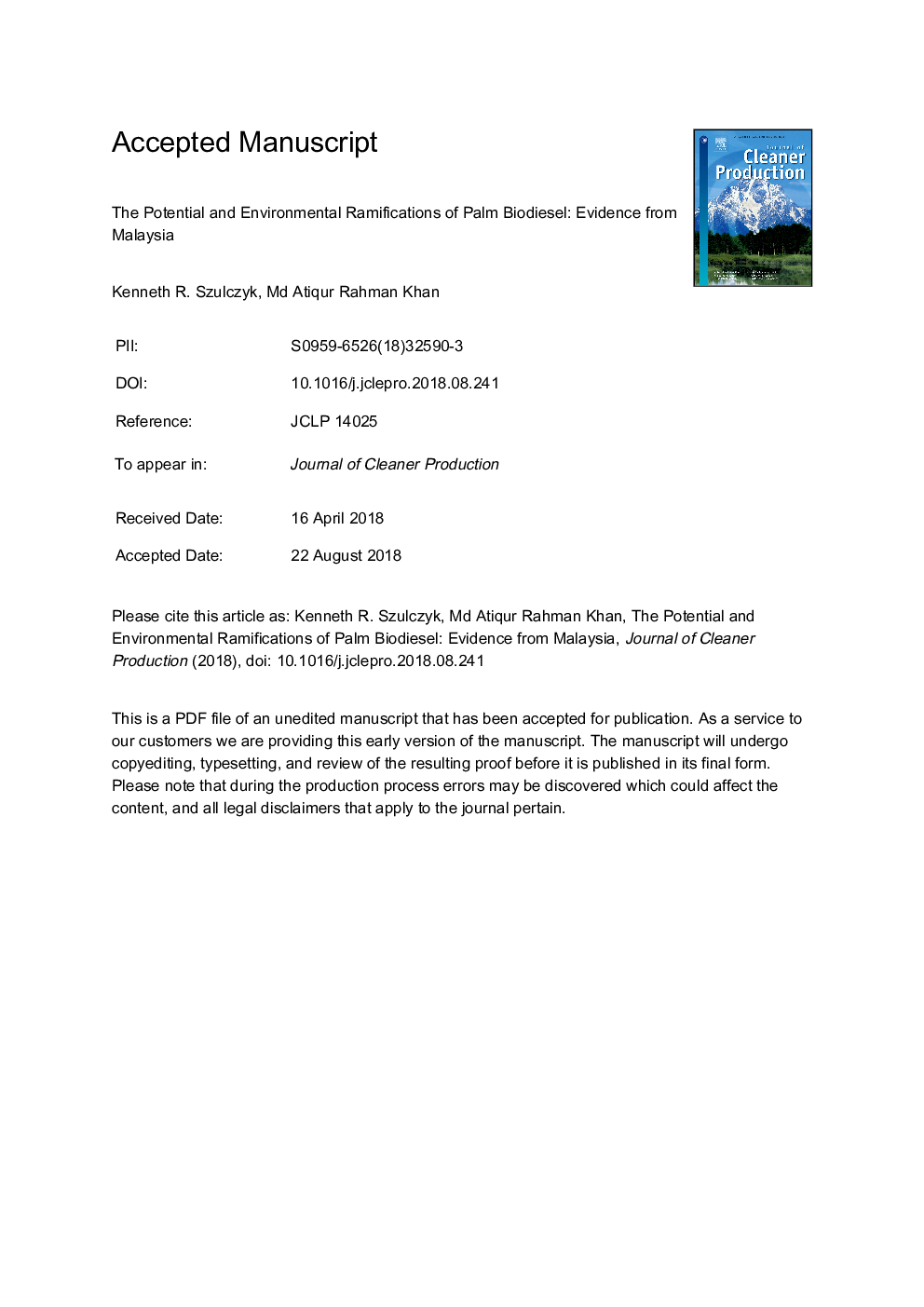| Article ID | Journal | Published Year | Pages | File Type |
|---|---|---|---|---|
| 8955729 | Journal of Cleaner Production | 2018 | 38 Pages |
Abstract
Malaysia finds itself in a unique position. The large flourishing palm oil industry could produce enough biodiesel to completely offset Malaysia's entire diesel consumption. Consequently, we employ a dynamic, partial equilibrium model of the Malaysian agricultural sector to predict whether palm biodiesel can offset diesel fuel. The model indicates palm biodiesel cannot compete with diesel's price because of the high cost of palm oil. Nevertheless, the government could subsidize biodiesel production at Malaysian Ringgit (RM) 1.09 per liter (or United States Dollar 0.28/liter) since biodiesel could help the government achieves its greenhouse gas (GHG) emission targets in the Paris Agreement. Furthermore, the government should implement two new regulations to boost the GHG efficiency of its agriculture. First, the palm oil mills should treat their palm oil mill effluents (POME) because POMEs emit methane, a potent GHG gas. Second, the government should prevent deforestation. The destruction of rainforests reduces the carbon storage because oil palm trees store half the carbon as pristine rainforests per hectare. Finally, palm biodiesel could lead to greater agricultural employment but induce higher agricultural prices, loss of export revenue, and rising imports.
Related Topics
Physical Sciences and Engineering
Energy
Renewable Energy, Sustainability and the Environment
Authors
Kenneth R. Szulczyk, Md Atiqur Rahman Khan,
